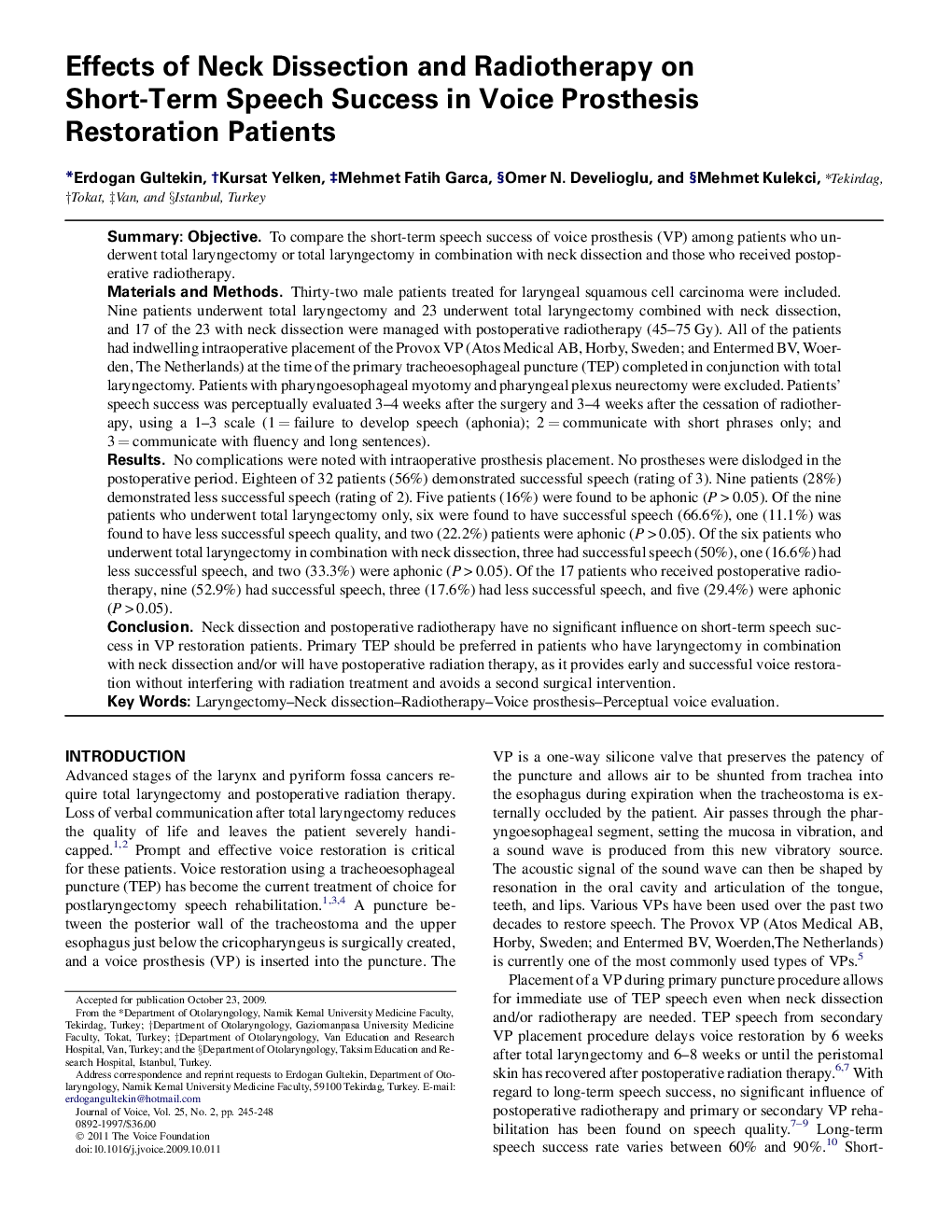| کد مقاله | کد نشریه | سال انتشار | مقاله انگلیسی | نسخه تمام متن |
|---|---|---|---|---|
| 1102088 | 953587 | 2011 | 4 صفحه PDF | دانلود رایگان |

SummaryObjectiveTo compare the short-term speech success of voice prosthesis (VP) among patients who underwent total laryngectomy or total laryngectomy in combination with neck dissection and those who received postoperative radiotherapy.Materials and MethodsThirty-two male patients treated for laryngeal squamous cell carcinoma were included. Nine patients underwent total laryngectomy and 23 underwent total laryngectomy combined with neck dissection, and 17 of the 23 with neck dissection were managed with postoperative radiotherapy (45–75 Gy). All of the patients had indwelling intraoperative placement of the Provox VP (Atos Medical AB, Horby, Sweden; and Entermed BV, Woerden, The Netherlands) at the time of the primary tracheoesophageal puncture (TEP) completed in conjunction with total laryngectomy. Patients with pharyngoesophageal myotomy and pharyngeal plexus neurectomy were excluded. Patients' speech success was perceptually evaluated 3–4 weeks after the surgery and 3–4 weeks after the cessation of radiotherapy, using a 1–3 scale (1 = failure to develop speech (aphonia); 2 = communicate with short phrases only; and 3 = communicate with fluency and long sentences).ResultsNo complications were noted with intraoperative prosthesis placement. No prostheses were dislodged in the postoperative period. Eighteen of 32 patients (56%) demonstrated successful speech (rating of 3). Nine patients (28%) demonstrated less successful speech (rating of 2). Five patients (16%) were found to be aphonic (P > 0.05). Of the nine patients who underwent total laryngectomy only, six were found to have successful speech (66.6%), one (11.1%) was found to have less successful speech quality, and two (22.2%) patients were aphonic (P > 0.05). Of the six patients who underwent total laryngectomy in combination with neck dissection, three had successful speech (50%), one (16.6%) had less successful speech, and two (33.3%) were aphonic (P > 0.05). Of the 17 patients who received postoperative radiotherapy, nine (52.9%) had successful speech, three (17.6%) had less successful speech, and five (29.4%) were aphonic (P > 0.05).ConclusionNeck dissection and postoperative radiotherapy have no significant influence on short-term speech success in VP restoration patients. Primary TEP should be preferred in patients who have laryngectomy in combination with neck dissection and/or will have postoperative radiation therapy, as it provides early and successful voice restoration without interfering with radiation treatment and avoids a second surgical intervention.
Journal: Journal of Voice - Volume 25, Issue 2, March 2011, Pages 245–248